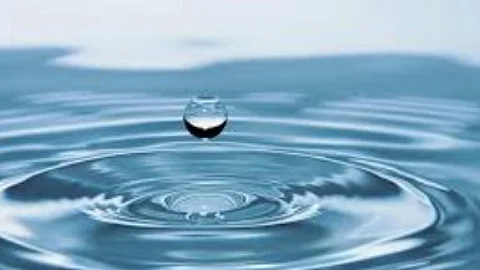

Water is no longer just a resource; it is power. Experts have long warned that future conflicts will not be over oil, land, or gold—but over water. In the 21st century, dwindling freshwater supplies, rising sea levels due to climate change, and surging global population growth have made water management one of the most complex and critical geopolitical challenges. The demand for water is projected to increase by 55% between 2000 and 2050, making it more valuable than oil in the coming decades. Yet, despite this looming crisis, the Goa government appears alarmingly passive while neighbouring states like Karnataka and Maharashtra actively exploit Goa’s water resources, threatening the state’s future stability and survival.
Take the Mhadei River dispute. A long-standing issue that threatens to dry up Goa’s lifeline. Karnataka’s government has boldly announced in its budget that a contractor has been appointed to execute the Kalsa Bhandura project, aimed at diverting Mhadei’s waters. This blatant provocation should have triggered an immediate and aggressive response from the Goa government. Instead, Goa’s Chief Minister has offered a feeble defence, claiming that the Union Environment Ministry’s decision holds more weight than Karnataka’s budget declaration. This passive stance is nothing short of negligence.
Every drop of water redirected away from Goa is a direct blow to the state’s ecological and economic stability. Goa's agricultural sector, drinking water supply, and biodiversity; all dependent on the Mhadei are now under threat. How much longer can the government afford to sit on its hands while Karnataka siphons away Goa’s rightful water?
If the Mhadei betrayal wasn’t enough, the situation in Maharashtra paints an even grimmer picture. The Goa government has invested thousands of crores in the Tillari dam project, yet Maharashtra has turned it into a playground for illegal mining mafia. Massive illegal stone quarries are operating in the submerged area of the Tillari dam in Dodamarg taluka, reducing the dam’s storage capacity and jeopardising the water supply to Bardez, Tiswadi, Pernem, and ultimately, North Goa.
The Supreme Court has already ruled that mining activities cannot be carried out in submerged or water body areas, and it is the state’s constitutional duty to protect these resources. But Maharashtra has brazenly violated these rules, allowing illegal mining to continue unchecked. And what has the Goa government done? Nothing. Instead of applying diplomatic and legal pressure on Maharashtra, Goa’s leadership has turned a blind eye.
It defies logic. The Goa government has invested heavily in Tillari, yet it remains a mute spectator as Maharashtra destroys the very infrastructure that was meant to secure Goa’s water future. The frequent bursting of the Tillari canal leading to the loss of billions of litres of water is a direct consequence of this mismanagement. This isn’t just administrative failure; it’s betrayal. When Goa’s resources are being looted, silence is complicity.
Environmentalists have been sounding the alarm for years. Senior environmental expert Dr Rajendra Kerkar has repeatedly warned that ongoing blasting in the Tillari Dam region will drastically reduce its water retention capacity, ultimately leading to water scarcity in Goa. Just this week, environmental activist Ramesh Gawas visited the site with officials from the Goa Water Resources Department. The team reportedly left in shock after witnessing the extent of the illegal mining. Five to six illegal mines are currently operating in the area. But despite repeated warnings, the Goa government has done little more than shrug its shoulders.
If this trend continues, even the booming tourism industry that Goa thrives on will suffer. Without adequate water supply, hotels and restaurants will struggle, and the ripple effect will devastate the local economy. Yet, the government remains unmoved. How can the leadership sleep at night, knowing that Goa's water security is being dismantled brick by brick by neighbouring states?
If Karnataka succeeds in diverting Mhadei’s water and Maharashtra continues to destroy Tillari, Goa will face not only water scarcity but social and political instability. Water is survival, and without it, Goa’s future as a thriving state is in jeopardy. The Goa government’s reluctance to confront these issues head-on raises serious questions about its competence and loyalty to its people.